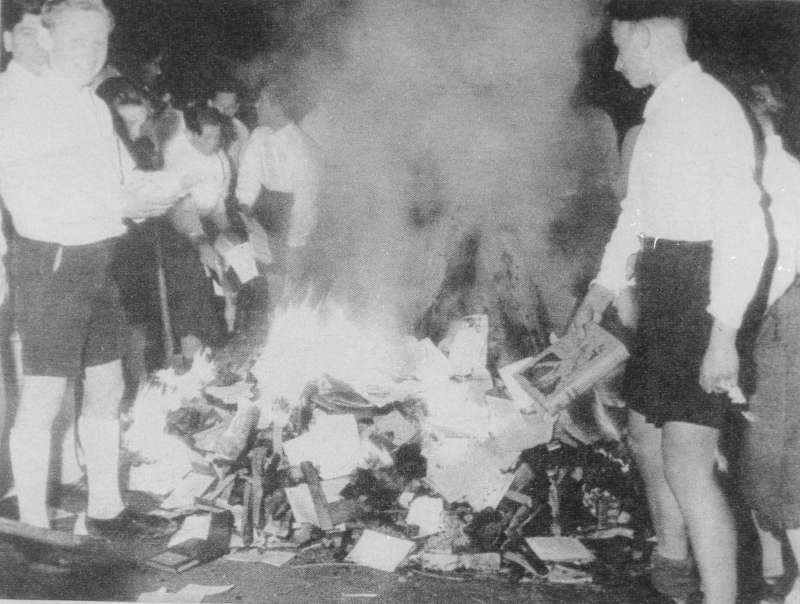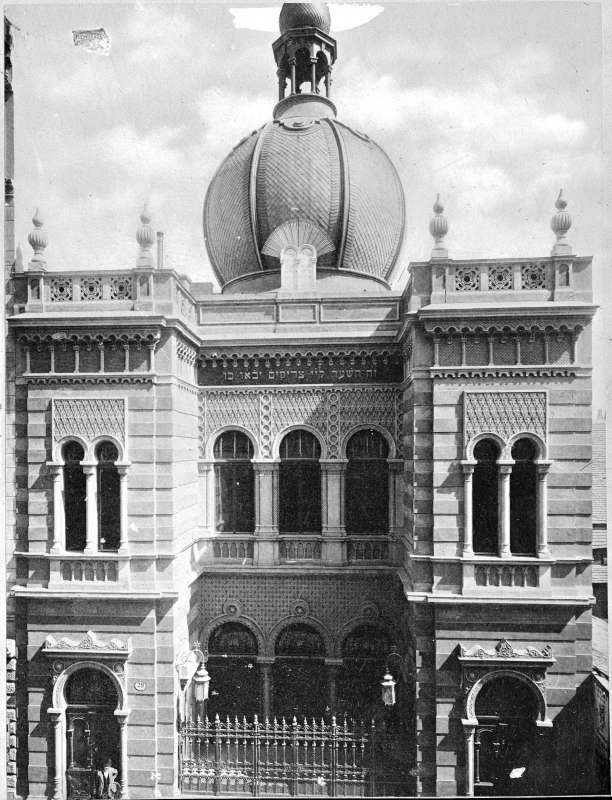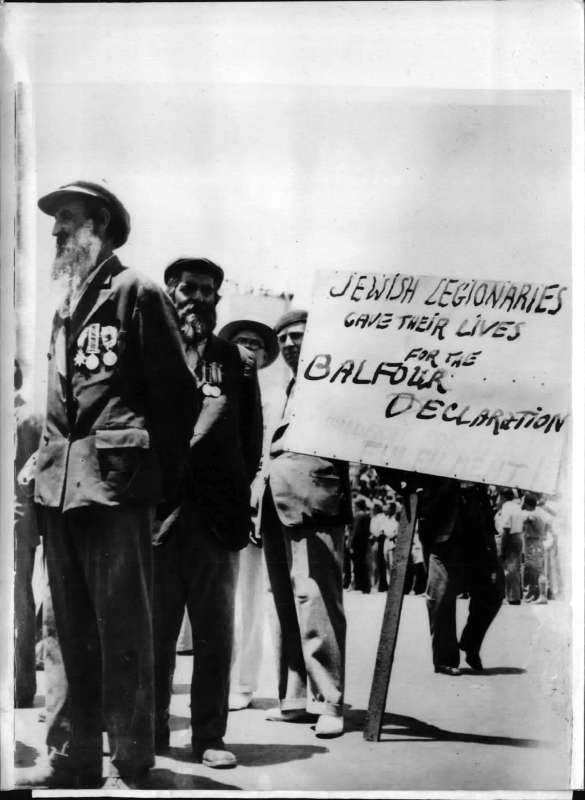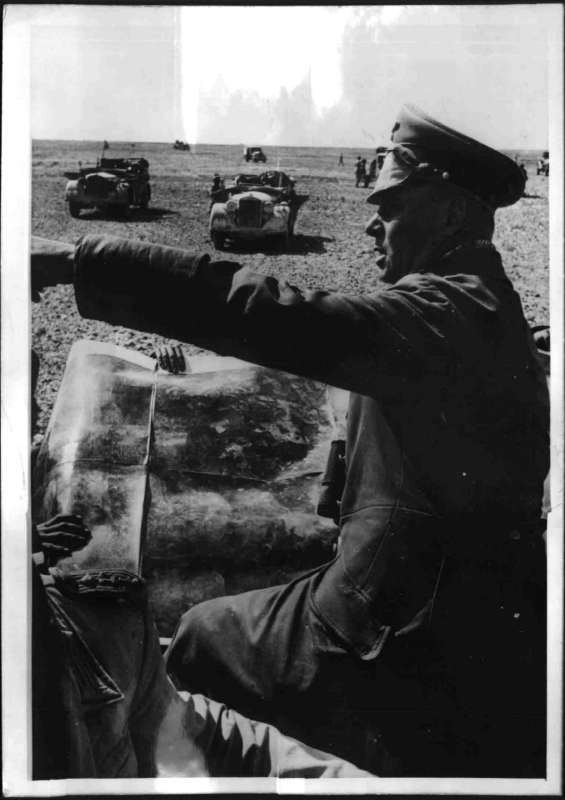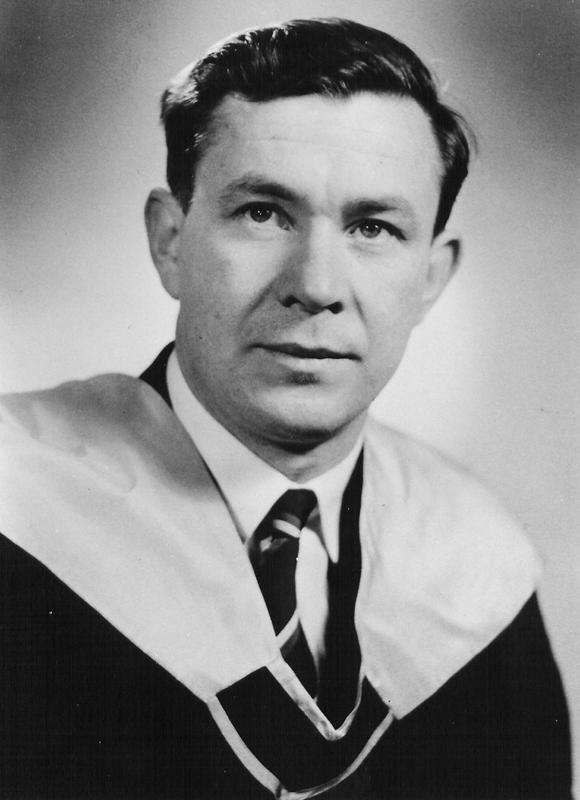Dan Porat
Life is serene, at last
I came to Vienna in January of 1934, just in time to hear the gun fire in the clash between the Austrian Army and the Social Democrats. (In February 1934, the Austrian Civil War, also known as February Uprising, between socialist and conservative-fascist forces took place.)
My father, who had served with the Austrian Army during World War I, had then been in Vienna for several years; his parents, three brothers and a sister had lived there from the first decade of this century. My older sister was attending medical school at the Vienna University. My mother, younger sister and I had been living in the most south-eastern corner of Poland, an area that is now in the Ukraine. I took years to get an exit visa from the Polish authorities, the typical arbitrariness of officialdom in those days. I missed my father very much. Life in the Carpathian Mountains was primitive and so were the schools, considering that most of the population was illiterate. But personally I had many intellectual challenges. Schooling was in Polish, all other daily affairs were conducted in Ukrainian or Ruthenian, and in religion school we were taught to translate the Hebrew bible into Yiddish. A dash of ancient Aramaic was added when we studied the Onkelos [1] commentaries on the bible. This multi-lingual environment stimulated a fascination with languages. Little did I know how useful this would become later in life after I would become a refugee. I learned also four alphabets: Latin (for Polish), Cyrillic (for Ukrainian), Hebrew (for Yiddish and Hebrew) and Gothic, the latter an unexplained remnant from the old Austrian empire, taught in Cheder (religion school).
About six weeks after arrival in Vienna I started attending the Chajes Realgymnasium. I was 11 years old, entered second grade and was ill-prepared for a school of high academic standards. I had to catch up on German, Latin (fifth and sixth languages in my childhood), mathematics as well as the culture and social customs of a new country. My spoken German was non-existent, but I did understand what was going on in class most of the time, because of my familiarity with Yiddish. By the end of the summer I had passed all exams and entered third grade as a regular student.
When I was 12 years old, I started working as a bookkeeper/clerk in my father's friend's shipping office, five evenings per week, four to five hours each evening and contributed my earnings to the struggling family's budget. I also learned an important lesson, namely, that one can study and work at the same time.
In February 1938 I spent late into the nights demonstrating against the Nazis. Although my parents were very strict generally, at that time in history they let me express my conscience. I am grateful for their insights and doubt whether I would have let my children go out into a similarly violent environment. In March of 1938 I was on the Ring in the first Bezirk [2] to see Hitler parade into Vienna in his open car. Was it childish curiosity or a sense of history that made me do it? I suppose it was the former. That same curiosity also took me wandering through the streets of Vienna whenever there were Razzias (round-ups of Jews). I witnessed many atrocities, such as stomping to death of a Jewish teenager in front of the Barmherzige Brüder [3] in the Große Mohrengasse. I did not look like the stereotype of a Jew as propagated by racial theory and depicted in the "Stürmer", a rabid anti-Semitic paper. Thus I had generally a sense of safety in the streets except in my own neighbourhood where I was known as a Jew and where I was accosted numerous times by thugs in Hitlerjugend uniforms.
On Kristallnacht [4] three men in civilian clothes came to our apartment looking for my father who had been visiting my grandfather. My mother phoned him and asked him to come home, not knowing what the three gentlemen were after. As he arrived a few minutes later he was told that he was under arrest. I did not want my father to be led away alone and insisted on in coming along. Although I was sixteen years old, I looked more like a fourteen old boy. The Gestapo men shoved me aside ignoring my pleas. In retrospect I understand how relatively "benign" Kristallnacht was: they did not arrest children. Yet, I ran after the truck that took my father to the police station in the Leopoldsgasse. There I stood until about 2 a.m. huddling with other Jewish people, mostly women, in the hope that our loved ones would be released soon. After all, we knew that they were innocent of any transgression of the laws and logically there was no reason for their arrest. The principal Jewish temple was very close-by and for hours I could hear a big commotion not knowing what was happening. Although very curious, I did not want to leave my post lest I miss my father when he is released. Then I noticed the acrid smell of a house on fire and walking a short distance I could see the Great Synagogue ablaze. This was a symbol of the times to come. I never saw my father again.
At home I found great distress. Nothing could assuage my mother's guilt that she had called my father home and thus became an "accessory" to his arrest. She was suicidal, and my sisters and I kept a constant vigil over her. This continued until my departure to Palestine in 1939. Obtaining a passport (with a swastika and a big "J" for Jude, stamped in the right upper corner) is a saga in itself. With my father in an unknown place and my mother in deep depression, I had to fend for myself. But in times of stress one matures quickly. My major problem was to get a passport, as I was citizen of no country, "Stateless" in official parlance of those times. My second problem, this one shared with friends, was to get an entry visa to a country, any country. Much time was spent standing in queues of various consulates or the passport issuing office. These queues of huddled masses soon became targets of violent hooligans (in proper uniform). I did some volunteer work at the Zionist office in the first Bezirk and the guidance of older co-workers helped me navigate through the intricacies of assembling all the documents for emigration. I was lucky to have been included in the list of Zionist youngsters going to Palestine.
The Kibbutz was one of the poorest at that time in Palestine, but what a delight it was to start living without fear (though still with worry about my family that I had left behind, especially about my father who had disappeared so suddenly). There were occasional attacks by Arab bands since this was the tail-end of the 1936–39 Arab revolt. The British authorities permitted us to have six rifles for self-defence, but we also had a clandestine collection of weapons that gave us a sense of security, even though it was a pitiful assortment of old rifles and hand-guns each of a different calibre of rounds. Luckily, this logistic nightmare was never severely tested in attacks. I was well prepared for Kibbutz life and had a working knowledge of Hebrew, having studied it in Cheder from age five and then at the Chajes Realgymnasium. I loved a dedication to an idea and its realization in daily life. It was all so authentic. The sociological underpinnings of Labor Zionism elevated manual work to almost religious heights. I volunteered for the hardest physical work, such as in the stone quarry, chose to live in a tent because it fulfilled my self-image of a pioneer. There was a price to pay, however: eight episodes of malaria, continuous outbreaks of staphylococcus infections that covered our bodies with boils and two surgeries for blood poisoning, a rather life-threatening condition before the advent of antibiotics. But there was much spiritual and emotional satisfaction.
When Rommel's [5] army reached the gates of Alexandria, Egypt, I volunteered to serve with the British Army. The Jewish Brigade had not been formed yet and I became a sapper in the Royal Engineers Corps. Much soul-searching preceded my volunteer service with the British.
The "White Book" report had just been published by the British Foreign Office reducing immigration to the Jewish Homeland (promised by the Balfour Declaration in 1917) to a trickle, 1,500 per month, just at a time when Nazi Germany declared the Final Solution. This was not an abstract matter for me. My sister had escaped from Vienna and was waiting in Yugoslavia for an illegal transport boat to Palestine. These were hardly sea-worthy vessels and were fully loaded with people, far beyond their capacity. To save room and weight, personal belongings of the illegal passengers were shipped ahead via commercial shipping. My sister's suitcase (all that one was permitted to take) arrived at the Kibbutz and I was hoping that her illegal ship would not be intercepted by the British Navy which would have resulted in internment of all the passengers, my sister included. But much worse happened. The German Army occupied Yugoslavia in the spring of 1941 and my hopes were dashed. The next I heard from my sister, via the International Red Cross, that she was in Ghetto Tarnow where she also found my father and mother. I do not know exactly how they all perished. According to records all inmates of the Ghetto were deported to death camps in three transports, the first on June 11, 1942, the last on September 2, 1943. Destinations: Auschwitz, Belzec and Plaszow. No survivors. In a direct way, British police was an accessory to my sister's death.
After much agonizing I volunteered with the British and six weeks later I was sent as a sapper to El-Alamein [6], to participate in the fiercest battle of the Desert War against Rommel's Panzer Corps. This, like Stalingrad, is considered the "turn of the tide" in World War II. After the Desert campaign I participated in the Italian campaign until the end of the war.
The Latin that I had studied at the Gymnasium came in good stead; I learned Italian very quickly. In May 1945 I was in Rome attached to a British Royal Engineers unit. Allied soldiers as well as the Italian people were celebrating the end of a terrible war and I found myself an outsider, alone with my anguish, a terrible dissonance with my environment. I had met many refugees who had come from Central and Eastern Europe and heard the unbelievable atrocities visited upon Jewish communities. I had a foreboding that I may not see my parents and my younger sister ever.
There was still hope that my older sister, who had completed her medical studies in Vienna before the Anschluss [7], would be alive. I could not imagine that a physician, so much in demand during the carnage of a war, would not be spared. The long search started in 1945 and ended in 1966 when I finally found the date of her deportation, October 5, 1942 from Vienna to Ghetto Minsk. There were no survivors.
During the war I managed to continue studies via correspondence and saved all I could from my army pay that amounted to two shillings and two pence per day. I hoped to use these funds for further studies after the war has ended. I was discharged in Palestine and, unlike in the US, there were no GI bills to aid returning veterans. I worked as a truck driver while continuing my studies.
One day, while driving through the Arab city of Jaffa [8], I was kidnapped at gun point by three Arabs but managed to escape at night. That summer of 1947 was a time of ethnic strife between Arab and Jew and I was lucky to have come out alive from that episode. Trucks started travelling in convoys for mutual protection. One morning we were ambushed between the Arab cities of Ramleh and Lydda. Eight land mines exploded under our trucks and a hail of bullets hit us from a nearby orange grove. The British administration did not permit us to carry weapons for self-defense and we had only pistols and hand grenades because these could be easily hidden. We dragged the wounded into a gully by the road side and were lying there in the mud protected by the camber of the road. We were watching for a final assault in which the proximity of the attackers would give us an opportunity to use our hand-guns and grenades. The ambush lasted for hours, long enough for the evening papers to report on it while the "battle" was still going on. Convoys to Lydda continued because the airport there was the only air-link of the beleaguered Jewish community to the outside world. At night we took turns manning trenches to protect outskirts of towns from marauding Arab bands.
The British left Palestine on May 14, 1948. The State of Israel was officially declared and on May 15, 1948, five Arab nations declared war on the newly established State of Israel. A volunteer army was quickly organized; no uniforms, very few weapons, no pay. I volunteered again, this time without hesitation. This was a war for survival. To support my wife and child I was trucking explosives on furlough days from army service.
After the Israel-Arab war I resumed my studies by correspondence and completed the final examinations for a bachelor's degree in 1954. A year later I received a scholarship from the British Council for a six-month's study period at a British University. I managed somehow to extend my stay at Manchester University to five years in which I earned an M.Sc. in (Nuclear) Physics and a Ph.D. in Electronics, and published six papers in scientific journals, one in the highly regarded Proceedings of the Royal Society. I supplemented my stipend translating scientific articles from German to English. I also allowed myself the luxury to attend the Royal College of Arts as a part-time student. A by-product of my research was ion implantation, a method that found wide use in fabrication of semi-conductors. I did not patent it.
Harvard University and the Massachusetts Institute of Technology were at that time collaborating on the design of a novel six billion electron-volt synchrotron for high-energy physics research. My training in physics and electronics, as well as my experimental physics work at Manchester University, prepared me for just such a project. I applied and received an appointment at Harvard as Research Fellow in Physics with a guest appointment at M.I.T [9]. I entered the USA on a "first-preference visa" with help of Harvard University who had to testify to the Immigration Service that they could not find a U.S. citizen of the requisite skills. I was so used to changing countries, customs and language that the transition to the US was almost uneventful. Shortly after my arrival at Harvard I was put in charge of a group designing the synchrotron's controls and was included in the five-member design leading team.
After completion of that project I chose to move to Stanford University located near San Francisco, California, where the planning of the largest electron accelerator – two miles in length – had just begun. Initially I was in charge of a group designing the accelerator's controls. Later I designed novel instrumentation for high-energy physics research. At retirement I had published 42 scientific papers in international journals and six text books that were also translated into Japanese (2), Russian, Spanish, Italian and French. One was given the "Best Technical Book of the Month" award. I also recorded several patents.
Now I am serving my community doing volunteer work and have re-established close contacts with former Vienna high-school friends. My three children had the good fortune to attend some of the best universities and are at the top of their professions. With three university degrees each, they continue the family tradition of giving studies a high priority. My son is Founder and Chairman of four companies in the "green" industries; one daughter is Chief Financial Officer at a major international corporation; the other daughter is Chief Executive Officer of a "green" start-up company. They all live productive lives and their father's travails due to Nazi persecution are not evident, neither in their psychology nor in their life styles. They are quite aware of missing one set of grandparents.
I have four grand-children, soon to be five. They are all very dear to me – they are the revival of what once used to be a large and vibrant family in Europe. Life is serene, at last.
And Austria? It lost the services of law-abiding, talented, hard working and highly educated citizens. And I know, or know of, many Austrian Jews, Nobel Prize winners among them, who were driven out of Austria and have made solid contributions in their new host countries.
The pity of it all.
In summary, I've been able to reconstruct a normal life even though from age 15 to 27 I was constantly in one or another danger. In those years of turmoil around me it was not a question of what will make me happier, rather a problem how to get out whole from one danger or another. I attribute my survival to a series of lucky escapes. Beyond that it took an enormous amount of energy to catch up; it also demanded sacrificing the enjoyment of many years.
The loss of parents and two sisters, however, cannot be wiped away, no matter how gratifying one's life has developed later. It remains an ever-present heart ache with which one has to live knowing that no effort of adaptation or sublimation will and can possibly mitigate that loss.
[1] Onkelos, translator of the Hebrew Bible into Aramaic, 2nd century AD.
[2] The Ring in the first Bezirk (District) of Vienna is a famous street, surrounding the old town.
[3] The Barmherzige Brüder is a catholic hospital in the 2nd District of Vienna.
[4] The "Kristallnacht" or "Reichskristallnacht" is another term for the anti-Jewish pogrom all over the German Reich on November 9/10, 1938, deriving from the shattering of numerous windowpanes during that night.
[5] Erwin Rommel (1891–1944), German Field Marshal, in WW II leader of the German (and Italian) forces in North Africa.
[6] El-Alamein: town in northern Egypt on the Mediterranean Sea. At the First Battle of El-Alamein in July 1942, Allied forces were able to stop the advance of Rommel's troops, at the Second Battle in October and November 1942, the Allies captured a victory, subsequently driving the German Army all the way back to Tunisia.
[7] The Anschluss refers to the annexation of Austria and its integration into the German Reich on March 13, 1938.
[8] Jaffa is now part of the Israeli city of Tel-Aviv.
[9] Massachusetts Institute of Technology.


